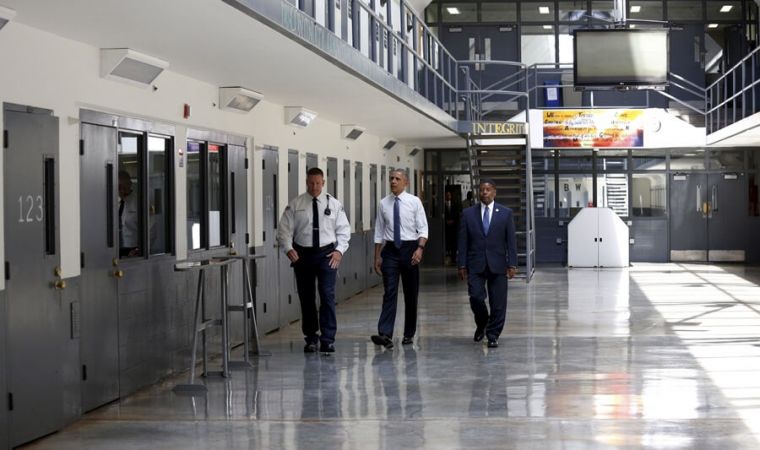It's the 'biggest sham': Sheriffs blast Obama administration's release of 6,000 prisoners

Sheriffs in the U.S. expressed concern about the safety of Americans following the release of more than 6,000 federal prisoners although those who support it said the act is being handled responsibly.
A total of 6,112 prisoners were released from federal prisons beginning in November based on a decision by the U.S. Sentencing Commission to reduce sentences for most drug trafficking offences retroactively. This coincided with a bipartisan support to reassessing federal sentencing.
"There's no transition here, there's no safety net. This is the biggest sham they are trying to sell the American people," congressional candidate and Sheriff Paul Babeu of Arizona's Pinal County told Fox News.
He added, "On average these criminals have been in federal prison for nine years—you don't have to be a sheriff to realise that a felon after nine years in jail isn't going to be adding value to the community. A third are illegals and felons so they can't work. What do we think they are going to do?"
The government said 77 percent of the released inmates are in half-way houses or home confinement.
Local police, however, have reservations on the initiative.
There will be a total of 46,000 inmates whose cases are being reviewed. Of the released, the justice department said 1,764 would be turned over to the Immigration and Customs Enforcement (ICE) for deportation proceedings.
Babeu doubts they will be deported.
"The promise is they're going to be turned over to ICE and deported. Anyone who thinks there's any likelihood of them leaving the U.S. ... think again," said Babeu.
Another sheriff also doubted the decision to release the prisoners.
"If [the Obama administration is] not capable of making honest and prudent decisions in securing our borders, how can we trust them to make the right decision on the release of prisoners who may return to a life of crime?" said Sheriff Harold Eavenson of Rockwall County, Texas.
Texas will receive 597 released inmates compared to the average of 80 per state.
An Associated Press report said many of those released were low-level drug dealers but some had prior convictions for robbery or involved in cocaine and heroin.
"For them to tell me or tell citizens that they're going to do a good job and these inmates are non-violent, when in many instances drug crimes, drug purchasing, drug trafficking are related to other, violent crimes – I'd be amazed if the 6,000 ... being released are non-violent," Eavenson added.
The justice department said last month that it was conscious of public safety in granting release of inmates, saying that every prisoner underwent assessment. It said the reductions in sentences were not automatic as judges denied 26 percent of total petitions.
Advocates of the release said the Sentencing Commission handled the release very well.
"I am sure many of the 6,000 prisoners would have loved to be able to leave prison as soon as their amended sentences were complete. But the Commission delayed implementation for a year so that as many inmates as possible could get to halfway houses, complete re-entry programmes, and begin job searches before actually being released," said Kevin Ring, director of strategic initiatives at Families Against Mandatory Minimums.
He added, "Tens of thousands of inmates leave federal and state prisons every week, and so there is no reason to be particularly worried about this group. Anyone who says otherwise is appealing to the public's worst fears."











